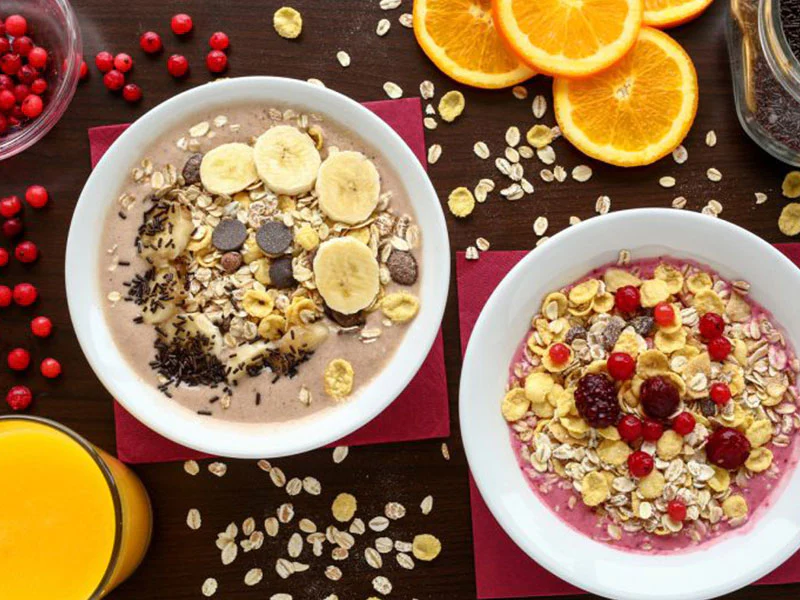Getting a good amount of shuteye makes you feel better, but it’s more than just a simple mood booster. Sufficient sleep has many health benefits – it boosts your immune system, keeps your mind sharp, gives your skin a youthful glow, helps you maintain a healthy weight, lowers risk of high blood pressure and heart disease, and more. It is an integral part of living a healthy lifestyle.
Unfortunately, some people have difficulties with trying to fall asleep. Others have trouble staying asleep, and there are those who simply fail to hit the sack at a reasonable hour every night.
The good news however, is that there are certain foods you can consume that can help promote a good night’s rest. If you’re one of those people who have a bit of trouble catching some Z’s, you may want to consider adding these to your diet:
Golden milk
A beverage you might not have heard of is golden milk, a dairy-free milk drink loaded with nutrients. Perhaps new to you, this treat is based on the traditional Ayurvedic recipe that has been savored for centuries. There are many different variations to the recipe (just search online) for golden milk, but its main ingredient is turmeric. Turmeric has recently been recognized in the scientific community for its potential to reduce inflammation, lower blood sugar in diabetics, lower cholesterol, improve digestion, and other positive benefits.
A hot cup of golden milk can help settle both your mind and body, helping you relax so you can drift off to a worry-free slumber.
Cherries
Cherries are one of the few natural foods with melatonin, a chemical that is known to help manage our body’s internal clock. In one study, researchers discovered that drinking tart cherry juice right before bed resulted in better sleep quality and duration for adults suffering from chronic insomnia.
Bananas
Bananas contain natural muscle relaxants such as potassium and magnesium, which can help promote sleep. They’re carbohydrates as well, which can make you sleepy.
Sweet potatoes
Like bananas, sweet potatoes contain sleep-promoting complex carbohydrates as well as potassium. If you don’t have any bananas or sweet potatoes around, you can try other potassium-rich sources such as baked regular potatoes, papaya, or lima beans.
Kale
Kale is loaded with calcium, which can help your brain use tryptophan to manufacture melatonin. Other green leafy vegetables similar to kale include mustard greens and spinach.
Jasmine rice
In 2007, the American Journal of Clinical Nutrition published a study which showed consuming jasmine rice four hours before going to sleep significantly reduced the time it took to fall asleep. Jasmine rice is digested slowly by the body, gradually releasing glucose in our bloodstream, which can help promote and maintain sleep.
Fortified cereals
Fortified cereals contain vitamin B6, which promotes melatonin production. The best types of cereal are Kashi, shredded wheat, barley, quinoa, and buckwheat, which are all loaded with complex carbs.
Pistachios
Pistachios contain a combination of vitamin B6, magnesium, and protein, which all help promote a better sleep. Try not to eat more than a one-ounce portion however, as consuming too many calories will cause a reverse effect.


 Opened more than 30-years ago by Dr. Ann Doggett, WholeBody Solutions is a holistic wellness center whose mission is to provide the community with safe, effective, and natural answers to health and wellness concerns. Our all-encompassing wellness center focuses on the following drug-free services: Nutrition, Chiropractic, Acupuncture, and Weight Loss. Our goal is quite simple – to make sick people well and to keep healthy people healthy. It’s that simple and that powerful.
Opened more than 30-years ago by Dr. Ann Doggett, WholeBody Solutions is a holistic wellness center whose mission is to provide the community with safe, effective, and natural answers to health and wellness concerns. Our all-encompassing wellness center focuses on the following drug-free services: Nutrition, Chiropractic, Acupuncture, and Weight Loss. Our goal is quite simple – to make sick people well and to keep healthy people healthy. It’s that simple and that powerful.

